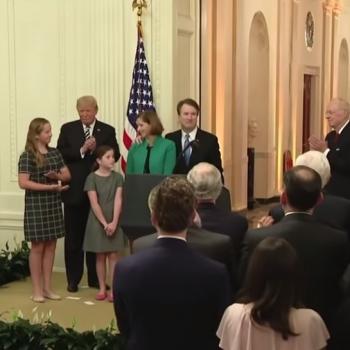As I’ve said before, I am extremely optimistic about the future of Christianity here in America. The old guard is fading into the sunset, and a new chapter is coming. However, I do believe in many ways we are at a crossroad and that this could be a 50/50 chance scenario. There’s a 50% chance that the future generation will pass on an antiquated, Americanized version of Christianity to the next. There’s also a 50% chance that emerging expressions of faith will continue to help the next generation rediscover the radical Jesus no one ever told them about.
I think the next ten years will perhaps be a decisive decade as this current reformation continues, and much will hinge upon how well we navigate these waters. Like the reformations of past, some things will depend upon whether or not we’re willing to make the most of the opportunity and see this transformation to the other side.
Here are three steps for us that I believe will be crucial for shaping the future of American Christianity:
1. Learn to be right where you’re at (be a missionary to Christians).
This is perhaps the hardest one, especially for me. Yes, I know that I’m the guy who publicly broke up with Evangelicalism, but in hindsight I am realizing that the key to affecting change is to learn to be right where you’re at. As people who have often found themselves on the margins, it would be easy to walk away and to become separate from everyone else– which actually would be a death blow to change. Instead, as much as possible, we must learn to stay put where we’re at. I am beginning to view this as being a “missionary to Christians”. Good missionaries don’t separate themselves from culture but instead completely submerge themselves within it and affect change from the inside out. We must embrace this idea of coming alongside other Christians and gently help them to experience the same type of paradigm shift we have experienced. This takes relationship, work, and time. However, if we don’t learn to be right where we’re at and affect change from the inside out, we might forfeit this opportunity. We must not give up on so many Americanize Christians who are perhaps primed for a radical paradigm shift to embrace a more radical, counter-cultural, emerging expression of Christianity. Many of us found this new kind of Christianity because someone took the time to walk beside us– we need to make sure we don’t leave people behind and that we pay it forward by walking beside those who haven’t made such a discovery yet. We must have the long-term vision to realize that as much as possible, we need to stay put if we truly want to change things on a large scale.
2. Reject positional power while embracing personal influence to shape people.
Within most movements is a quest for “power” and “control” but such things are not part of the way of Jesus. When Jesus said “blessed are the meek” he was teaching that the ones who will be blessed are the ones who reject power and control in favor of something more subversive. We should embrace the influence of subversive roles instead of desiring any type of power or control, if for no other reason than it’s actually more effective. When I taught Airman Leadership School in the Air Force, I remember teaching my students that there are two types of influence: positional and personal. Positional influence has the ability to bring change because you have the positional “power” to direct change, but people largely follow such change because they have no other choice. Personal influence is much different and runs much deeper. This type of influence creates change because people trust and respect you relationally– it is a more difficult type of influence to achieve but it is far more effective. When we learn, as much as possible, to simply be where we’re at– while rejecting power in favor of personal relationships– we have the ability to deeply affect change in an upside down, subversive way. If we all embrace this idea, I think we’ll see a massive shift within American Christian culture before the next ten years are over.
3. Get involved with Youth Ministry
This is a tough one to write about, because I’ve never enjoyed youth ministry– it’s just not my bag. However, as cliche as it sounds, the reality of the future is always found in the youth. One of the reasons why I am so optimistic about the future, is now more so than in the previous generation, youth tend to be realizing that the old rigid ways of doing things and some of the old ways of understanding God, don’t work anymore. They understand that something is deeply broken within American Christian culture and are waking up to the fact that the Jesus in the New Testament isn’t the same person they’re learning about at Youth Group. Kids today tend to realize there is a disconnect between violent portraits of God in the OT and the nonviolent God we meet in the NT, and know that we must uncover a better way of reading, understanding, and interpreting the OT. They understand that men and women were created equal and that it is always wrong to discriminate, especially in church. They understand that the idea of “eternal conscious torment” doesn’t jive with a loving God.
The question becomes: if those of us who struggled through these questions don’t help them, who will? We must be engaged in Youth Ministry if we want to move things forward– and I hope some of you are called to it, because I’m certainly not. If you’re toying with the idea, let me recommend an upcoming conference by my friends over at the Jopa Group called “Progressive Youth Ministry”. I’d strongly recommend anyone interested or engaged in Youth Ministry to check it out and consider attending if you can.
As much as this conflicts with things I’ve said when I’ve been in difficult space, I think these three points are of crucial importance. If we want to affect change and help others to experience a vibrant new faith, we must learn to be right where we’re at. We must reject power but instead embrace the way of influence by personal relationship. And, we must be engaged in Youth Ministry.
If we value the new kind of Christianity we’ve discovered, and love other people who haven’t experienced this yet, we will commit ourselves to these three principles.











